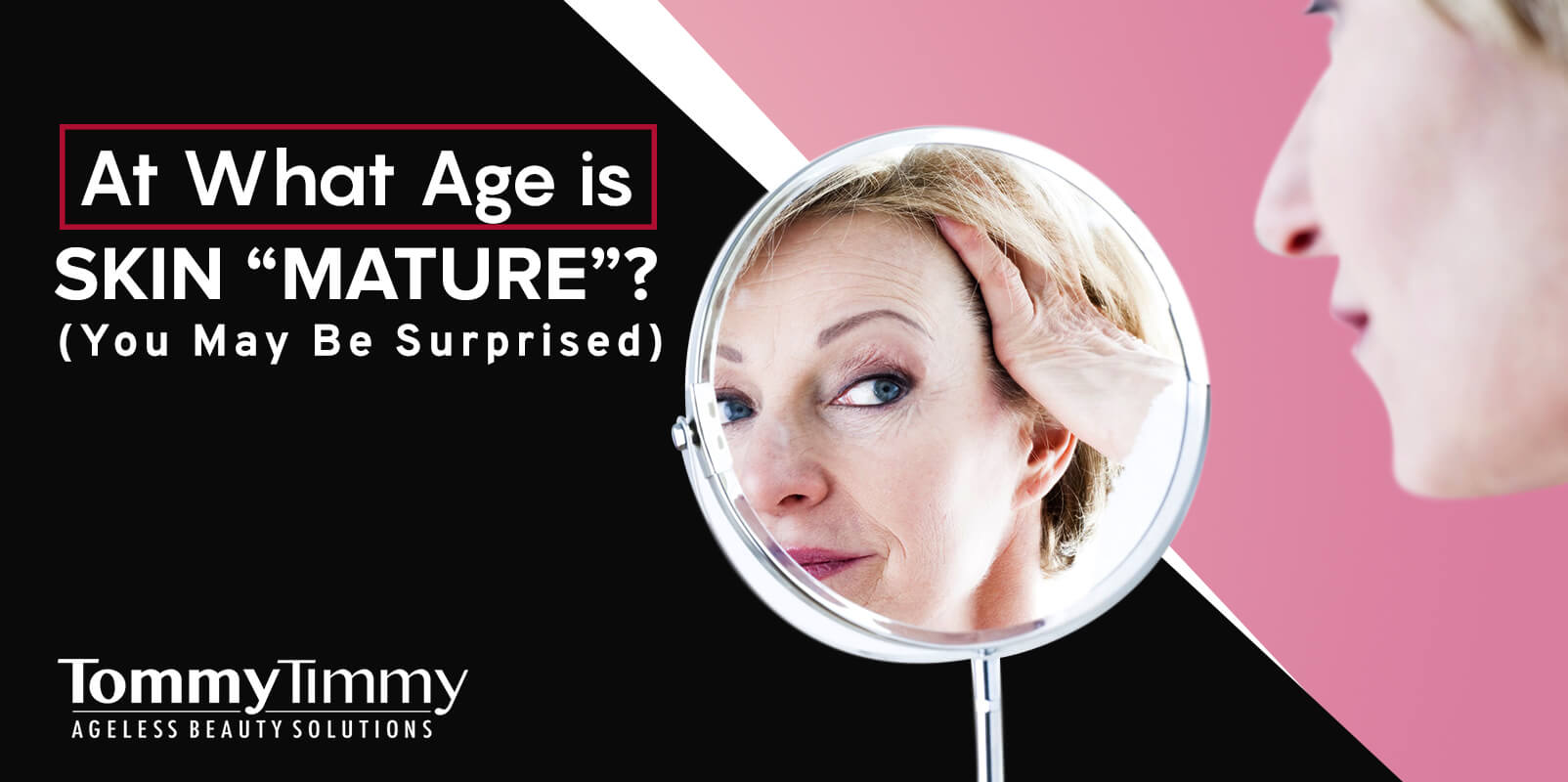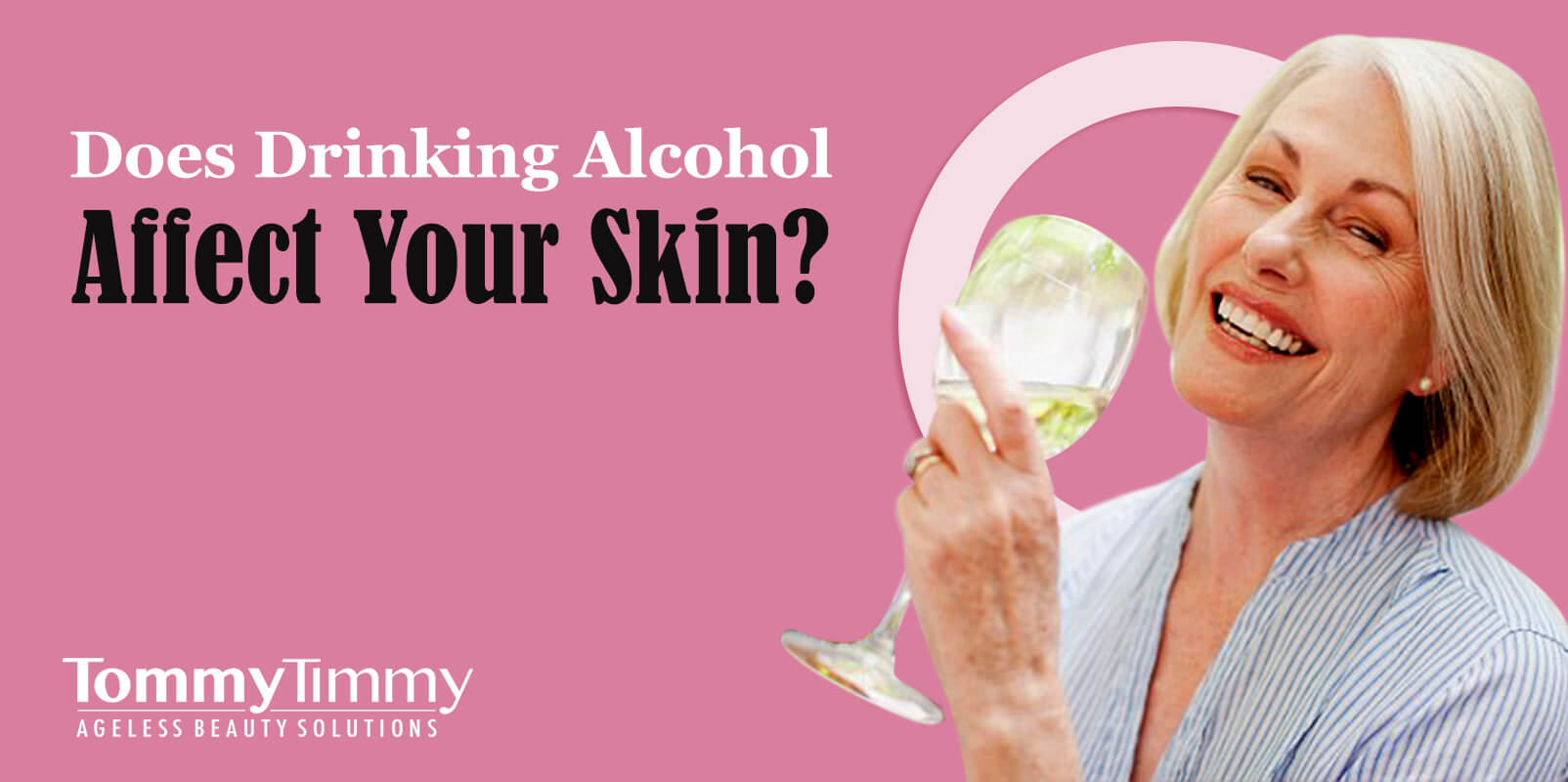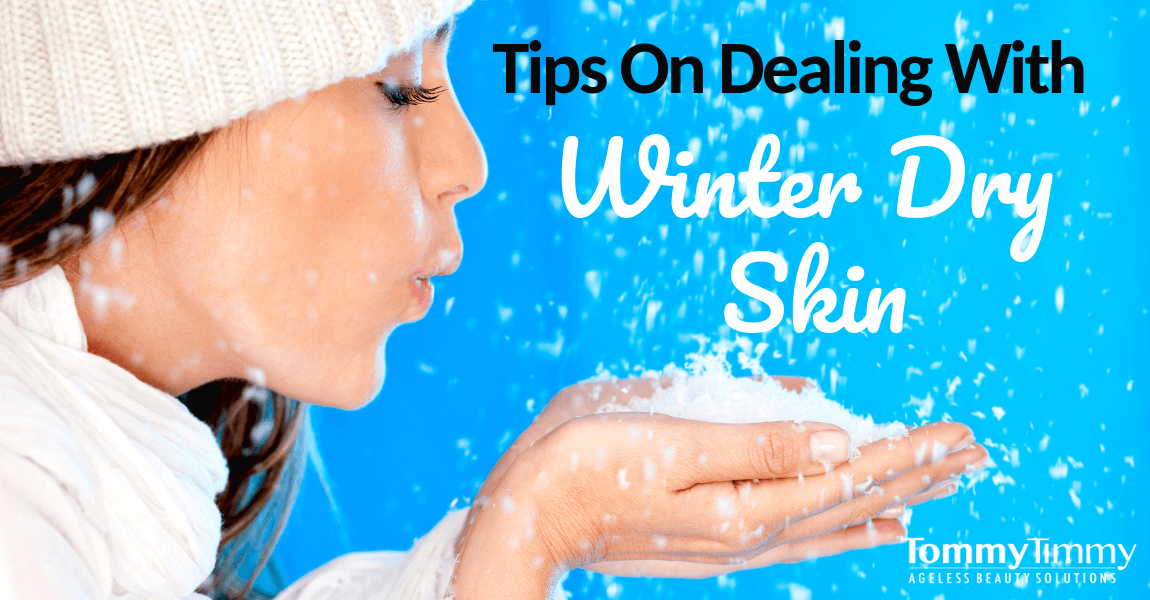When it comes to aging skin, we’re all concerned about maintaining that youthful glow. You may be wondering at what age skin is considered “mature.” The surprising answer is that skin starts to age on a cellular level between 25-30 in women.
Your skin doesn’t age immediately over night but you may start to notice some changes. The first sign of mature skin can be a lack of elasticity and increased dryness. Even if you have more oily skin, you may start to notice these symptoms. What exactly causes our skin to become mature? Interestingly enough, there are four processes that occur at varying ages that cause these skin changes.
Decreased Antioxidant Production
This is the first process in yoru body to decline. We always talk about getting antioxidants from our diets but your body makes its own antioxidants as well. Skin is prone to damage at any time but as you age, you should use more products with antioxidants. Examples include vitamin C, vitamin E, fruit acids, green tea extract and many more.
Decreased Collagen Production
Collagen allows your skin to maintain a firmness and forms a framework. When you have poor collagen production, you may notice a loss of elasticity. In practical terms, you skin just looks tired. As your cells age, they start to produce less collagen although this process happens differently in each person.
- Increased Cellular SenescenceThis process is fairly complicated and usually happens when you reach the age of 40. In laymans terms, the natural life cycle of skin cells is arrested which affects complexion in many ways. Skincare ingredients such as retinol, peptides, and glycolic acid become more important. They work to jump-start cell processes that are lagging.
- Decreased Skin Barrier Function
Your skin plays an important role of absorbing moisture and holding moisture in your cells. When you age, the skin barrier weakens which makes skin dry and less able to hold hydration on its own. This is a time when you may need rich moisturizers to maintain good hydration. This is a lot of information to process! The main takeaway is that using the right skincare products along with a healthy diet and exercise will help you to maintain youthful looking skin throughout your life.
The Moment You Look Old
You may still be wondering when these internal changes become visible. There’s no set time but it will depend on your race and lifestyle. Caucasian women start to notice significant changes in their skin around their late 30s. For women of color, this time is pushed back to their 40s. Darker skin tones often have less sun damage and a different genetic structure.
Hope for Mature Skin
Maybe you’ve already noticed some signs of aging in your skin. If you’re concerned about mature skin, you don’t have to give up hope. Instead, treat your skin with an anti-aging care regimen to keep it nurtured throughout your life. Eating a diet high in antioxidants, exercising regularly, and having a good skincare routine all keep you on track for a youthful glow.




